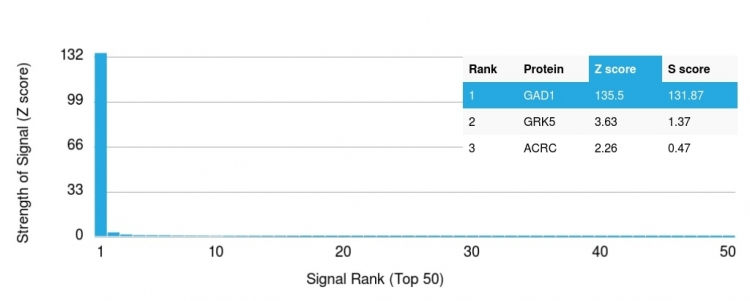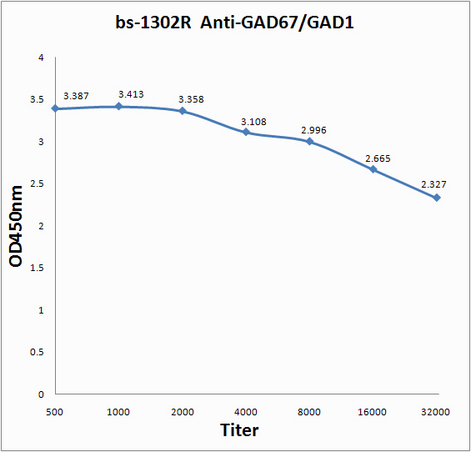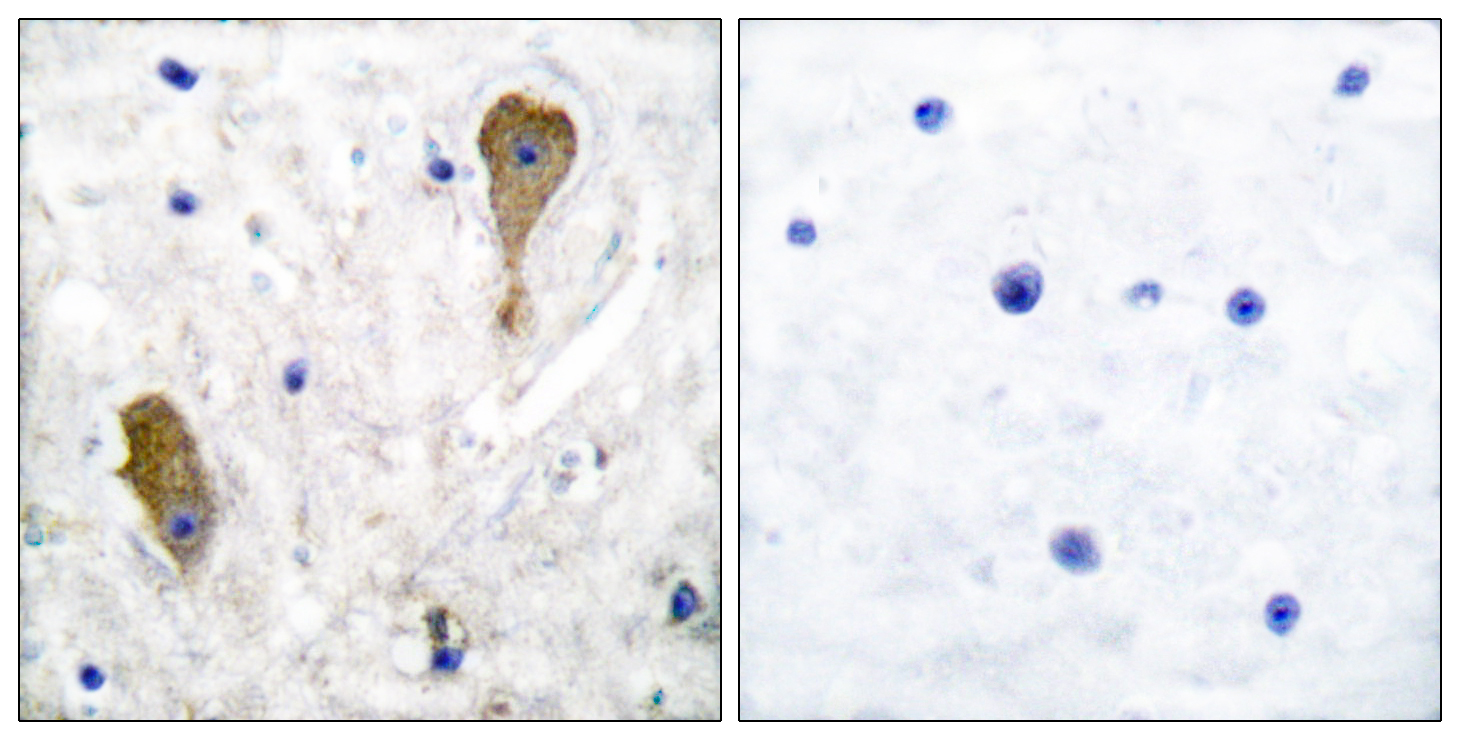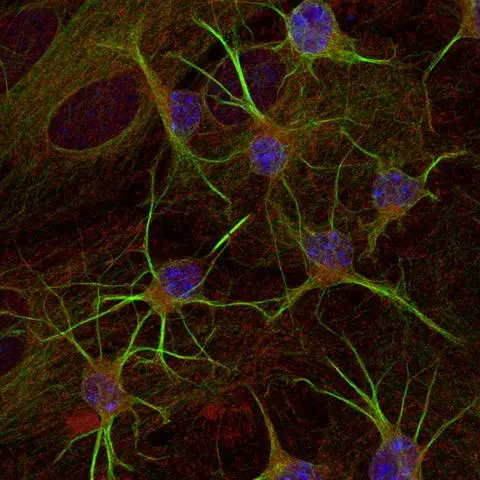![IHC-P analysis of human brain tissue using GTX17736 GAD67 antibody [GAD1/2391]. IHC-P analysis of human brain tissue using GTX17736 GAD67 antibody [GAD1/2391].](https://www.genetex.com/upload/website/prouct_img/normal/GTX17736/GTX17736_20200115_IHC-P_323_w_23060620_923.webp)
IHC-P analysis of human brain tissue using GTX17736 GAD67 antibody [GAD1/2391].
GAD67 antibody [GAD1/2391]
GTX17736
ApplicationsWestern Blot, ELISA, ImmunoHistoChemistry, ImmunoHistoChemistry Paraffin, Other Application
Product group Antibodies
ReactivityHuman
TargetGAD1
Overview
- SupplierGeneTex
- Product NameGAD67 antibody [GAD1/2391]
- Delivery Days Customer9
- Application Supplier NoteWB: 1-2microg/ml. IHC-P: 1-2microg/ml for 30 minutes at RT. *Optimal dilutions/concentrations should be determined by the researcher.Not tested in other applications.
- ApplicationsWestern Blot, ELISA, ImmunoHistoChemistry, ImmunoHistoChemistry Paraffin, Other Application
- CertificationResearch Use Only
- ClonalityMonoclonal
- Clone IDGAD1/2391
- Concentration0.2 mg/ml
- ConjugateUnconjugated
- Gene ID2571
- Target nameGAD1
- Target descriptionglutamate decarboxylase 1
- Target synonymsCPSQ1, DEE89, GAD, SCP, glutamate decarboxylase 1, 67 kDa glutamic acid decarboxylase, GAD-67, glutamate decarboxylase 1 (brain, 67kDa)
- HostMouse
- IsotypeIgG1
- Protein IDQ99259
- Protein NameGlutamate decarboxylase 1
- Scientific DescriptionThis gene encodes one of several forms of glutamic acid decarboxylase, identified as a major autoantigen in insulin-dependent diabetes. The enzyme encoded is responsible for catalyzing the production of gamma-aminobutyric acid from L-glutamic acid. A pathogenic role for this enzyme has been identified in the human pancreas since it has been identified as an autoantigen and an autoreactive T cell target in insulin-dependent diabetes. This gene may also play a role in the stiff man syndrome. Deficiency in this enzyme has been shown to lead to pyridoxine dependency with seizures. Alternative splicing of this gene results in two products, the predominant 67-kD form and a less-frequent 25-kD form. [provided by RefSeq, Jul 2008]
- ReactivityHuman
- Storage Instruction-20°C or -80°C,2°C to 8°C
- UNSPSC12352203


![WB analysis of human brain tissue lysate using GTX17736 GAD67 antibody [GAD1/2391]. WB analysis of human brain tissue lysate using GTX17736 GAD67 antibody [GAD1/2391].](https://www.genetex.com/upload/website/prouct_img/normal/GTX17736/GTX17736_20200115_WB_331_w_23060620_825.webp)





![ICC/IF analysis of A549 cells using GTX84469 GAD67 antibody [3G9].](https://www.genetex.com/upload/website/prouct_img/normal/GTX84469/GTX84469_1095_ICCIF_w_23061420_378.webp)
![ICC/IF analysis of COS7 cells transiently transfected with GAD67 plasmid using GTX84470 GAD67 antibody [3H2].](https://www.genetex.com/upload/website/prouct_img/normal/GTX84470/GTX84470_1096_ICCIF_w_23061420_241.webp)

